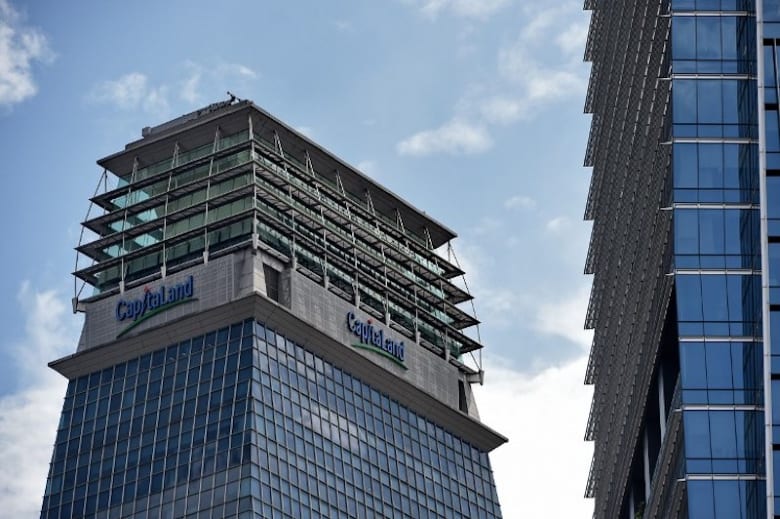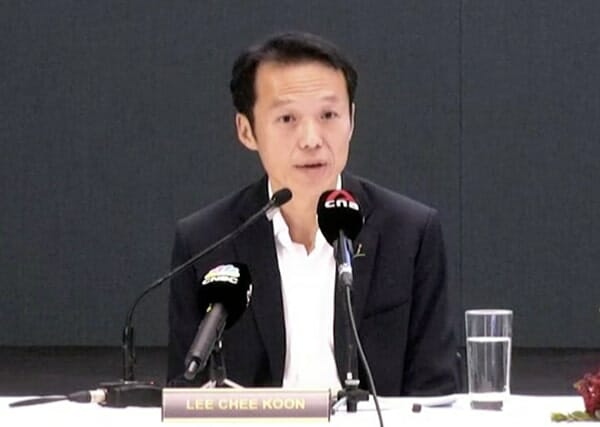
CapitaLand’s HQ, Capital Tower in downtown Singapore
Trading in shares of Singapore-listed CapitaLand came to a halt Monday morning ahead of an announcement that the property giant plans to take its development operations private and consolidate its investment management platform and lodging business into a new publicly traded entity.
With assets under management of S$115 billion ($85.6 billion), CapitaLand Investment Management (CLIM) is expected to be the largest real estate investment manager in Asia and the third-biggest listed REIM globally once the overhaul is complete, CapitaLand said in a filing with the Singapore Exchange.
The privatised entity will develop and incubate projects as a key pipeline for CLIM, which will be listed by introduction on the SGX.
“This restructuring is about sharpening our focus and positioning ourselves to be an asset-light and capital-efficient business,” said CapitaLand group CEO Lee Chee Koon, who will take the helm of CLIM as group CEO. “We have made good progress to pivot ourselves to the new economy sectors, expanding our global footprint and growing our fee-income business. We are now taking the next step to create a leading global real estate investment manager with dominance in Asia, especially through our track record in the public REITs space.”
Premium Payout
Under the terms of the proposed restructuring, CapitaLand shareholders will receive the equivalent of S$4.1 per share in cash and scrip, including one share of CLIM for each share in the existing company.

CapitaLand’s CEO at the Monday briefing
That offer values Southeast Asia’s largest developer at about $15.9 billion, and would value each share about 24 percent above CapitaLand’s trading price when the market closed on Friday, and represents a premium of 27 percent to the one-month volume-weighted average price, the group said.
As part of the share-based consideration, CapitaLand will also distribute to its shareholders units in CapitaLand Integrated Commercial Trust representing 6 percent of CICT’s outstanding units, bringing the group’s current 28.9 percent stake in the trust to 22.9 percent.
CapitaLand will continue to own a 52 percent interest in CLIM upon its listing.
The privatised development business — which will take the name CapitaLand Development — will be entirely held by CLA Real Estate Holdings, a company that currently owns 52 percent of CapitaLand and is in turn wholly owned by state holding firm Temasek.
CapitaLand’s lodging management business, including serviced residences under The Ascott Ltd, will become a part of CLIM, which will also hold the stakes in the group’s listed REITs and business trusts, as well as the managed private funds.
Investment Focus
In its 2020 results, CapitaLand reported its first full-year loss in almost two decades, citing revaluation losses and impairments tied to the COVID-19 pandemic.
Under the restructuring announced Monday, the group will focus on strategic growth by listing its capital-efficient, fee-generating investment management unit and privatising its capital-intensive, slower-moving development business.
CapitaLand appears to be undergoing an American-style evolution, from a property developer with an investment management arm to an investment manager with a legacy development component.
In pre-pandemic 2019, what the group calls its residential, commercial strata and urban development segment accounted for 20 percent of the group’s earnings before interest and tax, with investment properties contributing 80 percent of EBIT.
Some observers have begun to question whether the thin profit margins inherent in residential development make such activity worthwhile from a shareholder’s viewpoint.
Commenting on the role of the Ascott-led lodging platform, Lee told reporters during a media presentation that the business “fits quite nicely” under CLIM. He said that if the 190-city Ascott portfolio were to grow so big that its capital requirements became unmanageable, CLIM could look at different types of liquidity options.
Lee declared that “COVID-19 is behind us, I think we should be in the phase of recovery”, given that most of CapitaLand’s capital exposure is in Singapore and China, relatively unscathed by the outbreak.
“That’s why we also think it is right to accelerate our transformation and time to propose a restructuring exercise,” he said.
Leave a Reply